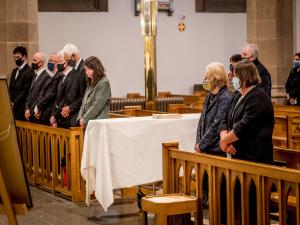
By Rebecca Black and David Young, PA
Former SDLP leader and Nobel laureate John Hume has made his final journey home to his native Londonderry.
His body was brought from Moville in Co Donegal, 18 miles across the Irish border, to St Eugene's Cathedral in the city ahead of his funeral on Wednesday.
A socially-distanced guard of honour made up of party activists watched on as the procession made its way to the doors of the cathedral.
They held candles in memory of the man feted around the world as a peacemaker, in line with the family's wishes.
Mr Hume was a key architect of Northern Ireland's Good Friday Agreement and was awarded the Nobel Peace Prize for the pivotal role he played in ending the region's sectarian conflict.
He died on Monday aged 83, having endured a long battle with dementia.
His widow Pat was tightly embraced by a family member as she watched her husband's coffin being carried inside the cathedral.
In ordinary circumstances, Mr Hume's removal service and subsequent funeral would have been expected to draw huge crowds, but numbers will now be limited due to coronavirus restrictions.
Those in attendance at St Eugene's Cathedral included SDLP leader Colum Eastwood and one of his predecessors, Mark Durkan.
A number of members of the public turned out to watch the cortege arrive at the cathedral, while others fulfilled the family's wishes to light a candle for peace at 9pm in Mr Hume's memory.
The funeral service will be broadcast on Wednesday morning by the BBC and RTE.
Mr Hume's widow, Pat, and other family members had urged people to stay at home and instead light a candle for peace.
"John loved the people of Derry and Donegal," the family said.
"The heartfelt and sincere condolences that we have received from people across the island, but particularly from the communities John loved being a part of, have been immensely comforting to us."
His family added: "We know that he would have prioritised public health and the safety and health of our communities.
"We're asking people to follow that guidance - please do not put yourself or others at risk. Instead, we would ask that people light a candle for peace at 9pm in their homes or at their door."
Irish president Michael D Higgins honoured that wish, as well as Taoiseach Micheal Martin, both tweeting pictures of lit candles in Mr Hume's memory.
Prime Minister Boris Johnson, Stormont Justice Minister Naomi Long and Sinn Fein MLA Martina Anderson also lit candles for Mr Hume.
Father Paul Farren, from St Eugene's Cathedral, said: "Pat and her family are very grateful for the outpouring of love and support following the death of their beloved John.
"The family are anxious that a public gathering for John's funeral might inadvertently put someone's health at risk in the context of the current Covid-19 pandemic, and are asking that people express their grief by staying at home and joining with the Hume family in a Celebration of Light for Peace.
"Instead of lining roads and streets to show respect to John, it is the wish of the Hume family that we remain at home and, at 9pm, light a candle and join with the family to pray the prayer for peace of Saint Francis of Assisi in the presence of John's body in the cathedral.
"This Celebration of Light for Peace is a fitting tribute to a much-loved and distinguished Irishman."
Mr Hume, a former MP, Stormont Assembly member and MEP, was a founding member of the party he went on to lead for 22 years.
He was a key figure in the civil rights campaigns of the late 1960s and also played a leading role in the formation of the credit union movement.
Throughout his political career, he remained steadfast in his commitment to non-violence.
His participation in secret talks with then Sinn Fein president Gerry Adams in the late 1980s and early 1990s was a key catalyst for the nascent peace process.
The SDLP leader faced intense criticism, including some from within his own party, when his dialogue with Mr Adams became public in 1993.
Despite threats to his life, he persisted with his efforts to engage with the republican movement and to convince the IRA to end its campaign of violence.
The highlight of Mr Hume's career came in 1998 with the signing of the historic Good Friday accord which largely ended Northern Ireland's 30-year sectarian conflict.
Along with Ulster Unionist Party leader David Trimble, now Lord Trimble, Mr Hume was awarded the Nobel Peace Prize for his contribution to stopping the bloodshed.
In 2010, Mr Hume was named "Ireland's Greatest" in a poll by Ireland's national broadcaster RTE.
His death came just six months after that of fellow Good Friday architect and long-time SDLP deputy leader Seamus Mallon.


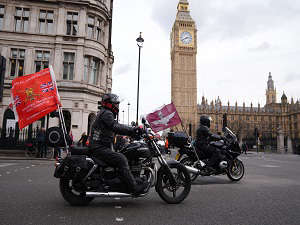 Bikers to descend on Westminster for veterans protest against Legacy Act repeal
Bikers to descend on Westminster for veterans protest against Legacy Act repeal
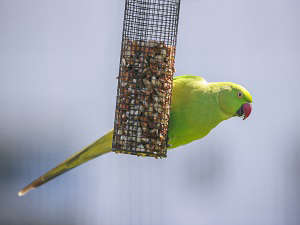 Guidance sought over future of colourful parakeets in Belfast park
Guidance sought over future of colourful parakeets in Belfast park
 Woman released after questioning over pipe bombs in Co Down
Woman released after questioning over pipe bombs in Co Down
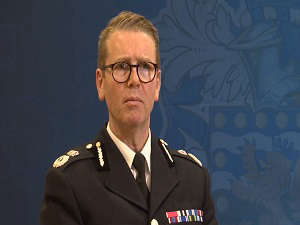 Suspended chief constable will not be prosecuted over alleged sexual offences
Suspended chief constable will not be prosecuted over alleged sexual offences
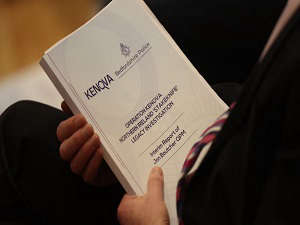 MI5 files not deliberately withheld from Stakeknife probe, review concludes
MI5 files not deliberately withheld from Stakeknife probe, review concludes